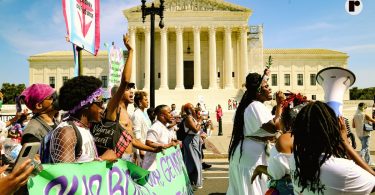BALTIMORE — A group of parents have reached their last legal resort in fighting to overturn a Montgomery County School policy they claim tramples on religious beliefs.
The coalition of elementary school parents petitioning the U.S. Supreme Court is made up of Muslims, Christians, and Jews.
All they seek is the right to opt their three and four-year-old children out of reading storybooks about gender transitioning, pride parades, and pronoun preferences. For their efforts, the parents claim the school board accused them of promoting “hate” and compared them to “white supremacists” and “xenophobes.”
Becket Fund For Religious Liberty is representing the parents in court. Here is how they describe the books in question.
“One book tasks three and four-year-olds to search for images from a word list that includes “intersex flag,” “drag queen,” “underwear,” “leather,” and the name of a celebrated LGBTQ activist and sex worker. Another book advocates a child-knows-best approach to gender transitioning, telling students that a decision to transition doesn’t have to “make sense.” Teachers are instructed to say doctors only “guess” when identifying a newborn’s sex anyway.”
The Montgomery County School Board previously notified parents when the books would be read in class, allowing them to opt children out of the curriculum if they wished, but they’ve since changed that policy stripping parents of that right.
Parents say the decision contradicts another school policy where older students can opt out of the sex education portion taught in health classes.
So far their argument’s been rejected at the district and appeals court levels.
RELATED: Parents can’t opt students out of Montgomery County’s LGBTQ+ curriculum, judge says
Attorneys for the parents wrote this in trying to convince the nation’s top court to hear the case.
“The Fourth Circuit’s rule—that parents essentially surrender their right to direct the religious upbringing of their children by sending them to public schools—contradicts centuries of our history and traditions. Those traditions uphold what the decision below tears down: parents right to protect their children’s innocence and direct their religious upbringing. Under the Fourth Circuit’s reasoning, parents cannot be heard until after the damage has been done to their children. But there is no unringing that bell—by then, innocence will be lost and beliefs undermined.”
This is just one battle that’s been brewing concerning certain books and materials in Maryland school classrooms.
In January Carroll County’s School Board unanimously voted to ban books containing “sexually explicit content,” outside “instruction related to family life and human development.”
Then last school year in Wicomico County a petition went around urging the school system there to remove obscene and “sexually explicit” books from classrooms.
Some of these concerns could now directly conflict with legislation recently passed by the Maryland General Assembly.
State lawmakers approved a bill called the Freedom to Read Act essentially removing power from local boards of education and other governing bodies, from disciplining school librarians who refuse to ban or censor the books.
It’s unclear when the Supreme Court will decide to take up the parents case in Montgomery County.







